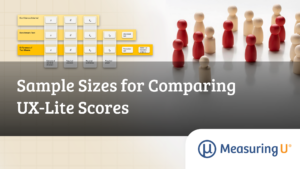UX News
A look at what's going on in the field of user experience.
Innovation is not magic; it’s technique
, UX Collective - Medium
Who hasn’t been part of a team or company that promises you that the next product will change the world?We are used to admiring, copying, and adopting ideas from other companies that have innovated the market.Who hasn’t been part of a team or company that promises you that the next product will change the world? Or being part of a project whose mission is to deliver brand new products every x time and behave as an innovation lab? These promises have long been the spirit of the technology business; we know that, but it still feels refreshing every time you jump into a new project or job.
Maybe this stake is more prominent in start-up environments, where new ideas surface every day and the opportunity for growth is potentially wider. Philosophies like “Build fast, fail fast” are at the core of an agile mindset, helping us determine whether an idea is viable in the early stages or whether a pivot is necessary to achieve the desired numbers and experience.
UI Design Validation with Nano Banana Pro
, UX Planet - Medium
My favorite 5 use cases
How to start writing (like it’s easy)
, UX Collective - Medium
And how to do hard things in general — based on dopamine addiction studies and the pleasure-pain principle.
Sample Sizes for Comparing UX-Lite Scores
, MeasuringU
The UX-Lite® is a relatively new metric, but it is versatile, short, and increasingly popular for UX research. It measures perceived usability and usefulness with just two items.
But if you’re using the UX-Lite to compare products or to see whether you’ve improved over time, what sample size do you need?
The 80% job: how design leads are using AI — and it’s not about mockups
, UX Collective - Medium
The 80% job: how design leads are using AI — and it’s not about mockupsDesign leads spend 80% of their time communicating, aligning, and justifying. That’s exactly where AI helps most.Image generated with MidjourneyPart 1: The Reality of Design LeadershipHere’s what my job description says I do: set design vision, mentor designers, elevate craft quality, drive innovation.
Here’s what I actually do: run 1:1s, mediate conflicts, write justifications for decisions, align with stakeholders, update Jira, answer Slack, prepare for meetings, sit in meetings, follow up on meetings.
When AI passes the capitalist Turing test
, UX Collective - Medium
AI was meant to explain and augment human intelligence. Why aren’t we getting any closer?Collage created by the author. Source for original images: https://www.tvfilmprops.co.uk/, https://www.brainline.org/tbi-basics/interactive-brainNearly every modern conversation about AI begins by acknowledging how transformative it is for everyday life — how it’s changing routines, replacing jobs, restructuring our social networks. As with any kind of rapid and uncontrollable change, opinions about it are polarised: skeptics are wary about AI’s larger effects on society — unemployment, mental health, environmental concerns. AI optimists, on the other hand, believe these tools will herald a new age of tools for thought — the next breakthrough in collective intelligence, akin to the emergence of writing systems, printing, or mathematical abstraction.
But one thing is clear: the focus is almost exclusively on AI functionality — what tasks AI can solve more efficiently, how to use it to get the most out of it, how to build workflows around it. This, perhaps, is not in itself surprising: with the plethora of models, tools, and chatbots available, even those grappling with AI on a daily basis — researchers, software designers, developers — struggle to make sense of them all.
Complete Guide To Creating Your Own Claude Skill
, UX Planet - Medium
Claude Skills are a very powerful way to create your own specialized set of tools for any task at hand. Without coding.
Claude Skills for Product Designers
, UX Planet - Medium
How to create your first Claude Skill
Nano Banana Pro for Wireframing
, UX Planet - Medium
6 Excellent examples for your inspiration
UX and NPS Benchmarks of Clothing Websites (2026)
, MeasuringU
It’s hard to beat the convenience of shopping for clothing online. You don’t have to worry about when the store will close or finding parking, and getting a price comparison with other stores is just a few clicks away. On websites, you can easily search for clothing using keywords, and it’s simple to see the entire catalog. There’s no reason to hunt through aisles or track down a salesperson.
But shopping for clothing online also has its drawbacks. You can’t try on the clothing. Not being able to walk the store means you’re reliant on the organization of the website. And just because you see it doesn’t mean it’s in stock. If you receive the wrong size, you may have to deal with restocking fees and the hassle of return shipping.
